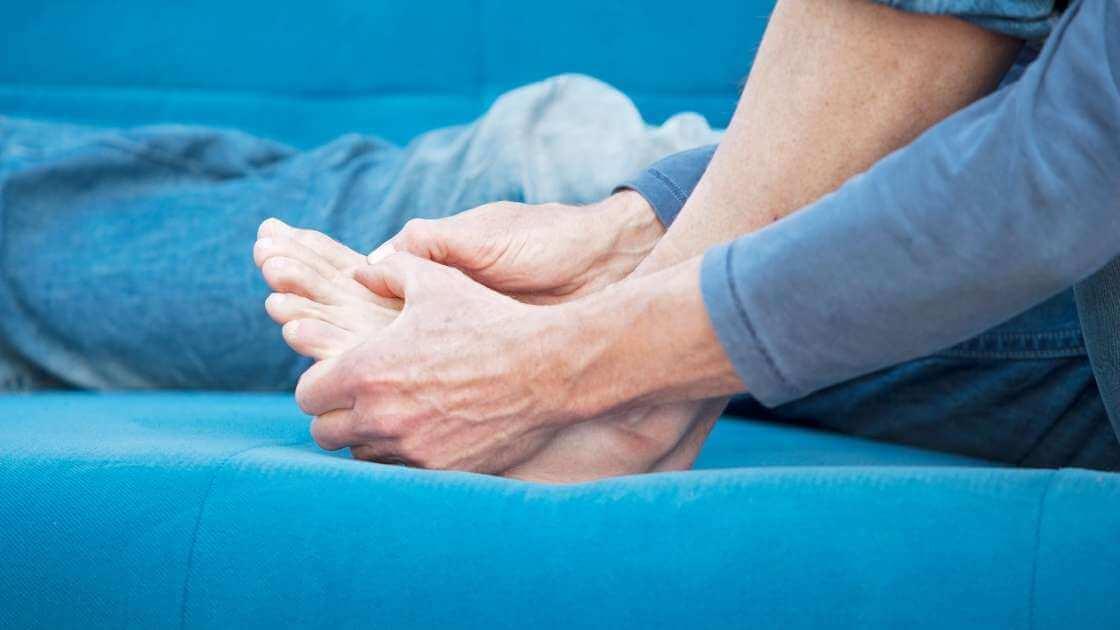Gout Program
Gout Consult Online
You can consult a doctor about gout online with Simple Online Doctors Australian-registered online doctor. You may complete an online assessment and brief consultation with Australian-registered doctors who will evaluate your suitability for the program.
Table of Contents
What is Gout?
Causes
Symptoms
Diagnosis
Gout Treatment
Prevention

Overview
What is Gout?
Gout is a form of arthritis caused by the accumulation of uric acid crystals in one or more joints. This causes severe pain, swelling, and tenderness in one or more joints. The most common place to get gout is where the joint for the big toe meets the foot.
People will often experience sudden and intense swelling and pain in and around the joint, known as a gout attack. People with gout will often describe gout pain as feeling like their foot is on fire. During this time, movement or any weight, even light weight, on the area can be excruciating.
Gout comes and goes, meaning the condition will go through periods when it is active, known as a gout flare, and periods where there are no symptoms. During the time when there are no symptoms, you must implement strategies to prevent flares.
Australian government sources estimate that up to 1.1 million Australians have gout. Of these, almost 8 in 10 are men.
What Causes Gout?
Gout is caused by the accumulation of uric acid crystals in the joints. This occurs due to the build-up of uric acid in the blood, which then accumulates in the affected joint. Uric acid is a normal waste product the body produces when it breaks down purines, a common substance in many foods.
Uric acid will normally be removed from the blood by the kidneys; however, when high levels of purine-rich foods are eaten, the body can struggle to remove the uric acid from the blood before it crystallizes in a joint, causing gout.
Not everyone who has a high uric acid level in the blood or enjoys a diet high in purines will experience gout; in fact, most won’t. The risk of developing the condition has multiple factors, including:
- Genes (family history)
- Age
- Weight
- Alcohol intake
- Other medicines
- Medical conditions such as high blood pressure, diabetes, and high cholesterol
- Kidney problems
- Ethnicity
Gout Symptoms
Gout often comes on suddenly and at night. During this time, the affected joint will become severely inflamed. This can lead to the following symptoms:
- Severe pain - Gout pain is often most intense during the first day of the flare but often lingers for the full duration of the flare, which can last a few days to a few weeks, depending on the severity.
- Swelling and redness - The joint will become swollen, re,d and warm to the touch.
- Limited joint movement - During the attack, the joint will often become immobile or close to immobile as the jagged crystals and resulting swelling limit how much the joint can move.
Gout Diagnosis
If you experience gout symptoms, it is important that you seek medical advice as soon as possible. Untreated gout may result in joint damage and unnecessary extension of intense pain.
There are a number of ways a doctor can diagnose gout. The most common is by physical examination and a series of diagnostic questions. This can be enough in some cases; however, the doctor may also decide to confirm the diagnosis with a test. These can include a joint fluid test, a blood test, an ultrasound, or an x-ray.
Gout Treatment
Gout treatment varies depending on individual health and needs and should be determined by a doctor.
Lifestyle management for Gout
Your lifestyle choices are one of the most important factors in preventing gout. The gout diet is often adopted by those with the condition as it can often limit purine intake enough to prevent flares.
The diet involves avoiding foods and drinks that are high in purines or result in an increased risk of a flare. These are diet choices such as:
- Avoid the following foods: Tomatoes, red meat, liver, kidney, mussels, scallops, anchovies, sardines, shellfish.
- Avoid the following drinks: red wine, beer or an excess of alcohol, high-sugar drinks, and tomato juice.
This does not mean you cannot eat these foods, simply that they should be enjoyed in moderation or in smaller portions. A healthy diet and exercise, in general, can improve your condition by limiting excess weight as a risk factor as well as potentially improving other risk factors such as diabetes, high blood pressure, and high cholesterol. You should speak to your doctor or dietician about ways to assist with a diet and exercise plan for you and your conditions.
FAQ
Gout Frequently Asked Questions
How do you treat gout?
During a gout attack, anti-gout agents and anti-inflammatory medicines are used to relieve pain and shorten the duration of the attack. When not experiencing an attack, preventative measures can be taken, such as diet modifications and exercise. If required, preventive medicines can be used to lower uric acid production in chronic gout sufferers.
What does gout feel like?
Gout has been described as feeling like your joint is on fire. Suddenly appearing (usually overnight) severe pain, swelling, redness, and warmth are the common symptoms.
How long does gout last?
Gout can last from a few days up to a few weeks, depending on the severity of the flare and if treatments are administered.
Can gout be cured?
Gout will generally come and go but cannot be permanently cured. Gout can be managed effectively with lifestyle changes, preventive medicines, or management of risk factors, greatly reducing your chances of a gout flare.

